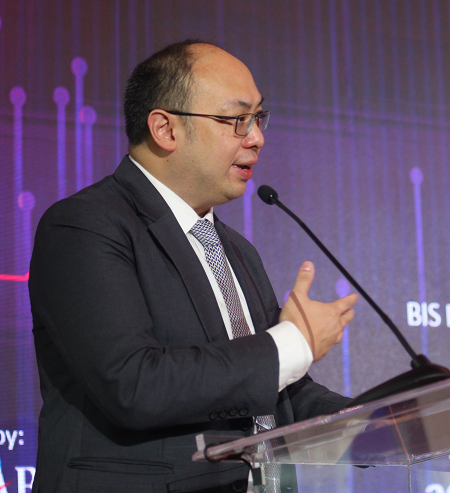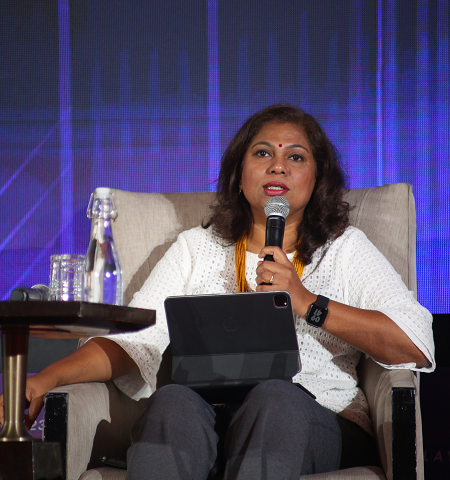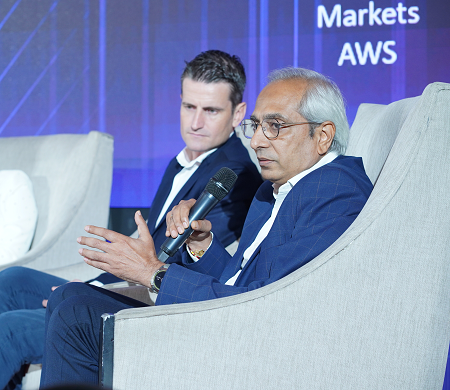The emergence of new digital banks and next-generation technologies that drive financial inclusion took centrestage at Finance Malaysia 2023 when industry leaders convened in Kuala Lumpur to discuss the latest developments.
Using the Financial Sector Blueprint 2022-2026, Bank Negara Malaysia (BNM) steers the financial industry to create a more inclusive and sustainable financial ecosystem that supports economic growth, and strengthens the country’s foothold in Islamic finance. The central bank also expanded this ecosystem by setting five new digital banks in motion, and encouraging the growth of fintechs serving the unbanked and underbanked.
Despite challenges to the global economy, Malaysia remains resilient, seeing a robust growth of 5.6% in the first quarter of 2023— aligned with projected annual growth rate of 4% to 5% for 2023. This performance is driven by strong domestic demand and investment, as well as sustained growth of the digital economy as new technologies are adopted and supportive policies were laid down by BNM.
Benjamin Lee, head of the Bank for International Settlements (BIS) Innovation Hub in Singapore commended BNM’s leadership in driving innovation in the sector and stressed the need for central banks to continuously embrace innovation.
He said: “Malaysia has emerged as a leading institution in the fields of sustainability and innovation. There have been sustained efforts by financial authorities like BNM to galvanise the necessary attention and creative solutions to address many of the challenges ahead, and future-proof this financial landscape.
“Central banks’ mandate is primarily to maintain monetary and financial stability. However, they also have a key role to play as catalysts in driving innovation. As experts in money and payments, they are responsible for supporting public policy objectives such as trust, efficiency and inclusion, but balancing that with the trade-offs among them.”
The financial sector blueprint envisions the digital economy making up 22.6% of Malaysia’s gross domestic product by 2025 as new products and new business models emerge. This opportunity for growth requires the industry to future-proof the skills of its workforce and modernise legacy systems to support evolving needs while mitigating security threats.
Kalyani Nair, Maybank’s group chief digital officer, emphasised the importance of balancing innovation and cybersecurity risks, and ensuring the ethical use of emerging technologies like generative artificial intelligence (AI).
She said: “In this day and age, because of this massive digitalisation happening, a lot of my time is also spent managing risks. At Maybank, more than 96% of transactions happen on the digital platform. And because everyone is so comfortable using digital, it’s a fantastic honeypot for fraudsters today.
“And so, while we think about innovation, we must never forget how we can protect our customers. Another is in terms of ethics. As we look into how we can use generative AI, we cannot treat these models like a black box. There must always be human intervention so we are accountable for whatever comes out of it. Accountability by people will be very important.”
Bhupendra Warathe, banking and cloud lead for Japan, APAC and Middle East for Accenture agreed, saying regulators are now putting equal emphasis on security and financial supervision.
He said: “Compliance for banks has traditionally been focused on financial supervision, but now that banks are expected to provide services all the time, regulators are writing new regulations that they are enforcing on the banks and this poses challenges to the banks in terms of how they operate. It’s very important for banks to adopt cloud and similar technology to develop resilience.”
New digital banks widen financial inclusion
The rise of new digital banks in Malaysia, expands financial inclusion as these institutions will have more flexibility to tailor their services, said Pei Si Lai, CEO of GXBank, the first digital bank approved to operate in the country.
She said: “Given the target market that we serve— the underserved—we need technology that can scale. It needs to be agile because we need to learn how to serve this target group. The challenge is how we evolve in tech, and alternative data we can use.”
Shailesh Grover, chief digital innovation officer at Hong Leong Bank, welcomed the entry of digital banks in the Malaysian market because it gives consumers more choices. It also opens up hybrid opportunities to maximise physical presence and digital capability.
He said: “It’s a good thing for consumers to have a choice. Anything that a digital-only bank can do, everybody can also do. It’s a level playing field. The challenges and opportunities for both are different. We need to come up with propositions that make sense. We need to think differently to make the best out of physical and digital.”
Thriving financial industry needs a steady supply of professionals
With the current pace of technology adoption, the financial industry remains a net job creator and would require more professionals with strong digital skills in the future. As the industry evolves, however, skills can quickly become outdated, requiring ready access to upskilling.
Peter Murray, country general manager for Malaysia and emerging markets at AWS commented: “There’s a lot of great ideas being launched within new digital communities and heritage organisations. And it’s all going to be underpinned by people. We need to invest in grassroots skills in digital and cybersecurity. If we, as a collective, invest in skills, Malaysia will be in a key position to capitalise in the next 15 years to be a data and technology infrastructure centre in the region.”
New digital banks are well-resourced, potentially viable
In a presentation leading up to the Finance Malaysia Awards 2023, Chris Kapfer, director of TABInsights, the research and consulting arm of The Asian Banker, highlighted retail banking developments and trends in the financial services industry in Malaysia.
He pointed out that banks are promoting the use of mobile-banking instead of desktop online banking still used by 64% people in the country. To entice users to use their phone to bank, end-to-end novel initiatives in home and car financing are being introduced on platforms where brokers, dealers, bankers and buyers are brought together, increasing mobile engagement and also improving the customer experience.
For micro and small business clients, banks are introducing more cash management solutions, beyond banking solutions, and small-ticket loans that are not collateralised. Embedded finance and ecosystem building continues to drive growth as financial services become more entrenched in the daily life of rural communities and businesses.
New digital banks in Malaysia are well-resourced, with potential to be viable. Because of stricter regulation, these challengers will be ‘slow-burn disruptors’ with greater activity in less capital-intensive areas like remittances, payments, and insurance.
Kapfer also indicated that the use of AI, machine learning, and big data would move from back end to front end use in sales and personalised services.










All Comments